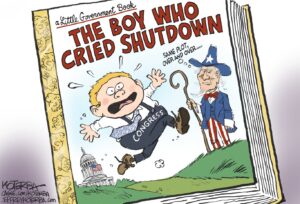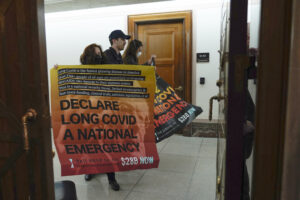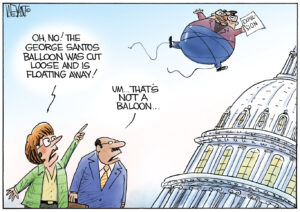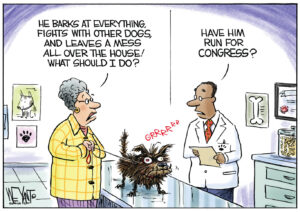Whatever Happened to Personal Responsibility?
Why is a welfare mother to blame for her poverty while Wall Street fat cats can count on the federal government for $700 billion?In the gospel according to Fed Chairman Ben Bernanke, “there are no atheists in foxholes and no ideologues in financial crises.” Suddenly, we are all pragmatists, trying to dig our way out of the Wall Street rubble with whatever tools are at hand.
Well, there is some truth in that. But I think we are still capable of emotional multitasking, holding anger in one hand and fear in the other while grasping for a solution. I also think it is possible, maybe imperative, to exhale some outrage. In this case, some moral outrage at the sudden, convenient collapse of the ideology of personal responsibility.
For decades now the mantra of personal responsibility has kept a lock on our imaginations. And our political dialogue.
I saw it back in the 1990s, when we ended welfare for better and for worse with something called the Personal Responsibility Act. More recently, I’ve heard conservatives resist the morning-after pill on the grounds that it would foster irresponsible behavior. When Hollywood puts sex and violence on television and Madison Avenue sells junk food, we expect parents to — guess what — exercise their responsibility.
In the economy even more than the culture, personal responsibility has been a best-seller. We were told by conservatives and free-market holy rollers that markets were smart and governments were dumb, that the government was the problem not the solution. So when credit cards come through the mail, college freshmen are expected to just say no. When poor people were wooed and seduced by subprime mortgages, they are the ones dubbed irresponsible.
Over time, the same rhetoric justified a huge shift in economic risks of the average citizen. In the name of the ownership society, many pensions became 401(k)s while health insurance costs moved from employer to employee. All of these risks were covered like a bad bet by the idea that people could take better care of themselves.
The ownership society turned into the everyone-on-your-own society. Three years ago, Congress passed a law making it harder for people to declare bankruptcy. Just six months ago, Henry Paulson, the treasury secretary who now wants to be czar, insisted the government actions to prevent mortgage foreclosures would “do more harm than they would do good.”
But now, as Jacob Hacker, the author of “The Great Risk Shift,” puts it, we are seeing that “the rhetoric of personal responsibility stops at the edge of the market.”
This is by no means the first time that this administration has shattered the moral cover story. Consider the lame duck who reappeared on the national stage this week, sounding less like a president than like a press secretary for Paulson.
He will leave without an iota or admission of guilt for the Iraq war, for the mushroom cloud warnings, the pre-emptive strikes against nonexistent weapons of mass destruction. The man who divided the world into good and evil has never taken that famed responsibility for the original sin of the war.
The other bookend on the Bush years is this meltdown of epic proportions. We are bailing out the institutions that operated what Warren Buffett once called the financial weapons of mass destruction. Only this time, the mushroom cloud — the threat of an economic catastrophe — may be real.
Personal responsibility? “I share the outrage,” says Paulson. But in his original three-page fix-it manual there was a paragraph that lit up like neon. The secretary who asked for all the power to “take such actions as the secretary deems necessary” also asked for protection from any oversight or review.
Personal responsibility? The titans coming to Congress with cups in their hands and the economy in the balance were not too embarrassed to fight against caps on their salaries. What exactly do we have here? Socialism for the rich?
I expect that there will be some pretty little salary caps put on the heads of CEOs, and taxpayers will get some equity in companies. We will get tighter regulations in return for our $700 billion. And some change … of rhetoric.
“People today are more concerned about big insecurity than big government,” says Hacker. The ownership society is quickly becoming the security society. But the money that should go to funding our future? It’s on a mission to rescue our economy from the reckless ideologues of “personal responsibility.”
Ellen Goodman’s e-mail address is ellengoodman(at)globe.com.
© 2008, Washington Post Writers Group
Your support matters…Independent journalism is under threat and overshadowed by heavily funded mainstream media.
You can help level the playing field. Become a member.
Your tax-deductible contribution keeps us digging beneath the headlines to give you thought-provoking, investigative reporting and analysis that unearths what's really happening- without compromise.
Give today to support our courageous, independent journalists.






You need to be a supporter to comment.
There are currently no responses to this article.
Be the first to respond.